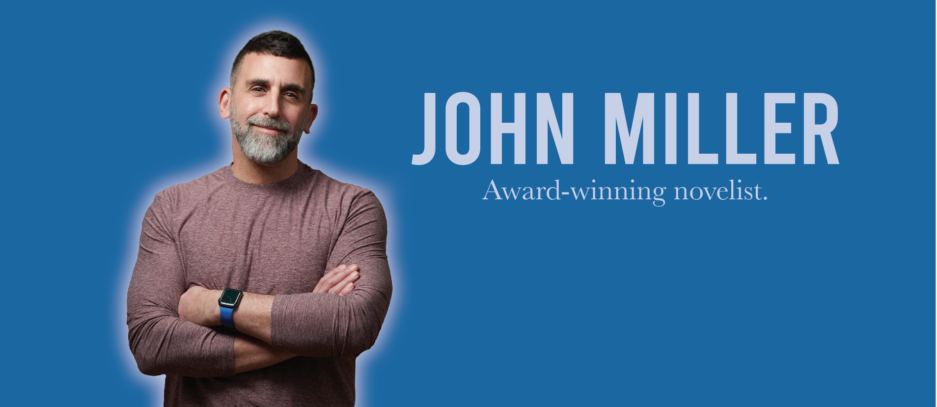 For nearly eight years, I’ve had the good fortune to be in a writing group with two other published authors. We meet every month for three hours to discuss work and careers, and to give each other support. We’ve developed as writers and during that time we’ve all published second novels and made a significant dent in a third manuscript.
For nearly eight years, I’ve had the good fortune to be in a writing group with two other published authors. We meet every month for three hours to discuss work and careers, and to give each other support. We’ve developed as writers and during that time we’ve all published second novels and made a significant dent in a third manuscript.
In that time, these are three things I’ve learned.
1. Free editing is good
When I decided to write my first novel, I had no skills and decided I’d better get some, fast. I enrolled in writing workshops, mostly for the lessons of the instructors, but benefited more than I expected to from his edits, as well as those of my fellow classmates. I completed the first draft of my first novel that way, moving from one workshop to the next, writing and rewriting eight pages at a time. I also sent my finished manuscript to a professional editor, but it would not have been ready even for that, had it not been for those first impressions from fellow students. Writing students are not all great writers, but some of them are great editors, and all of them are readers. As my father taught me, the reader is never wrong.
When The Featherbed was published, and I began working on A Sharp Intake of Breath, my publisher introduced me to Elizabeth Ruth and Sally Cooper, whose first novels were published in each of the two seasons ahead of me. Our group was born.
These days, the cost of professional editing is more and more being pushed down to authors. We feel pressure to pay for editors before submitting manuscripts, selling manuscripts that are nearly print-ready. In this climate, a source of free editing is even more crucial, and not just because it saves us from depleting the dozens of dollars we have made from the sales of our previous works.
My writing group gives me early feedback on plot and character, before I invest too much time and effort on a story that is unlikely to work in the long run. They correct embarrassing grammar mistakes that I know I should have caught, ones that, sadly, even professional editors are sometimes missing.
Being edited is hard but it has become easier as I’ve gained confidence. And, as my hide has thickened, praise doled out liberally from my colleagues helps soothes the dry cracks. But editing their work is harder still. Our lives are rushed. I read my colleagues’ work too quickly during an hour stolen from a full and busy life. I try to give insightful comments that go beyond the critique of a particular word, or the striking out of an extraneous sentence. I always, always feel I am getting the better part of the bargain. I can only hope they feel the same way.
2. If we’d had more time we’d have held shorter meetings
Pascal’s famous quote about the difficulty with writing a short letter reminds us that good editing takes time, and makes for tighter text, but Pascal’s main point is often missed. It isn’t simply time that is needed, but focused time, time spent with an editor’s eye.
Our writing group wants time for everything but we don’t have it. We want time to discuss the industry, the writing process, the promotion of our published works, new writing, and as important as any of those things, time to socialize and catch up.
Our meetings are painfully scheduled months in advance, a difficult negotiation among people with second, more reliably remunerative work, with partners, children, friends, and travel. One of us lives in Hamilton now, the other two in Toronto. Somebody always has to be commuting an hour to ninety minutes. Until recently, we thought these were the reasons we found it hard to contain ourselves to our three hours.
Not so – it turns out our problem was mainly poor editing. We needed to adapt Pascal’s advice, treating our group as the letter in his famous quote. Our meetings had little structure and our pacing was off. Some paragraphs needed to be struck and perhaps saved for another chapter. Each chapter didn’t need three protagonists. We could choose one each month, while the other storylines were paused, to be picked up later. If reading and editing new work has too often taken a backseat to other topics, we needed to remember the crucial rule: show, don’t tell. Finally, if producing new writing advances the plot of our collective story, social time is its character development. We now schedule time for that too, devoting whole gatherings to it, in a restaurant over a good meal. Without it, we’ll stop caring what happens next.
3. You have to ride the changes, adjusting course when necessary
In our group, we’re primarily novelists and as such we publish only every three to five years, surfacing into the literary world for six to twelve months to hustle new work. During this time, we experience either praise or harsh critique, usually both, but we feel once again like we belong. In between, while we’re producing new work, we recede into literary exile. Meanwhile, we write, and occasionally, painfully, we don’t. When we complete a novel, we anxiously wait for it to sell.
These literary seasons pass against the backdrop of our others lives, which are punctuated by events that propel the writing process forward, delay it, or completely interrupt it. We move. Partners come into our lives, or relationships end. Loved ones die, we have financial crises. Children are born. We become distracted, overwhelmed, pull back and eventually, because we want it badly enough in spite of everything, we re-engage.
In the eight years our group has been meeting, our lives have changed dramatically. At times, it’s hard to continue meeting but we keep at it. Last year, a confluence of stresses in each of our lives led us to the difficult decision to go on six-month hiatus. We didn’t disband. We used the time to re-examine our purpose, focus, structure, even our membership. I couldn’t imagine not being part of the group, said Sally, when we reconvened. We’ve changed our name, and we’re imagining new possibilities. Our story is still evolving. This is only chapter two.
